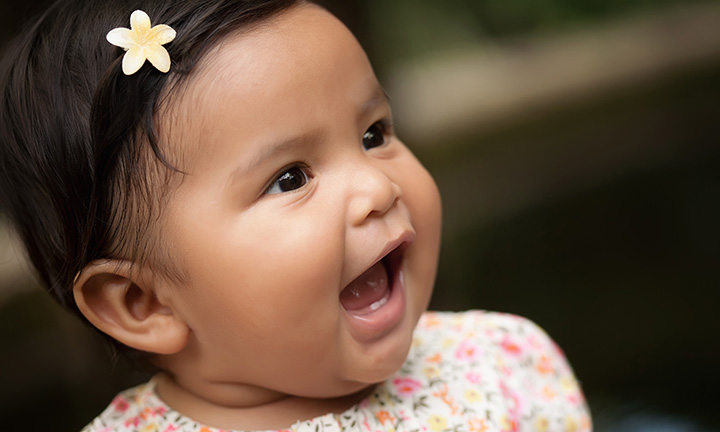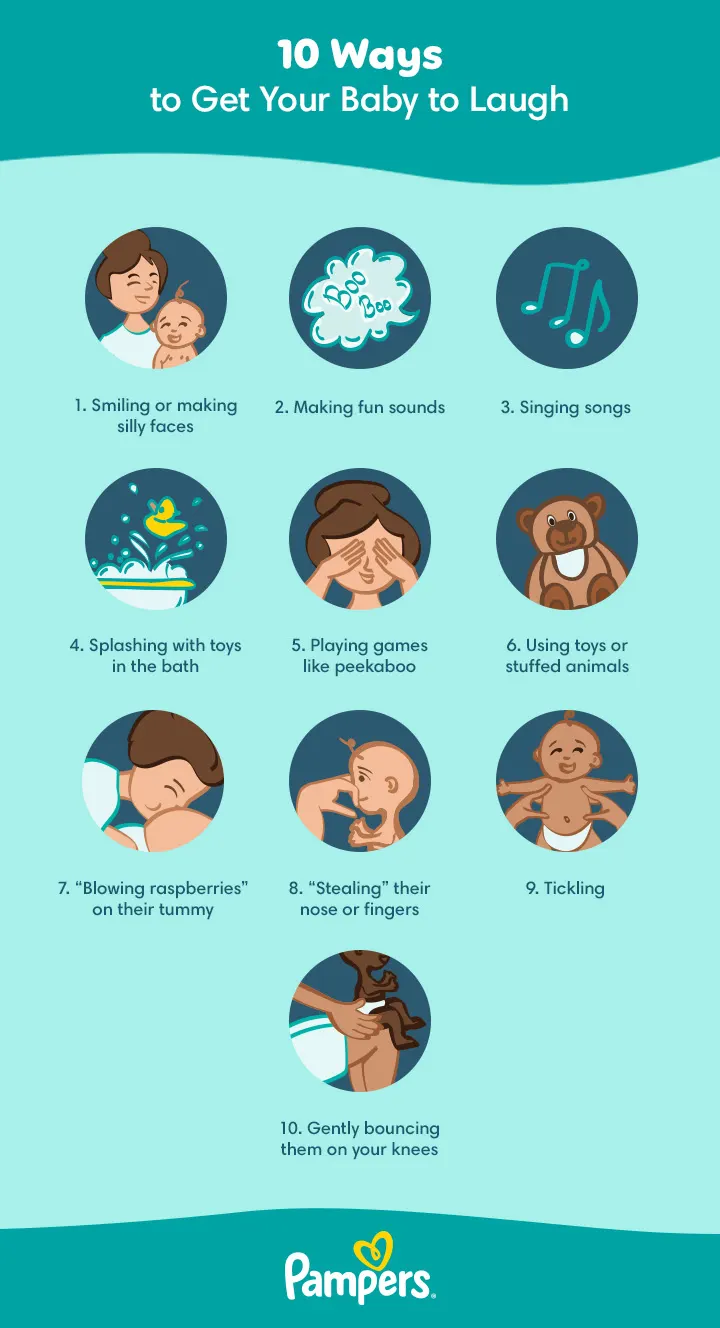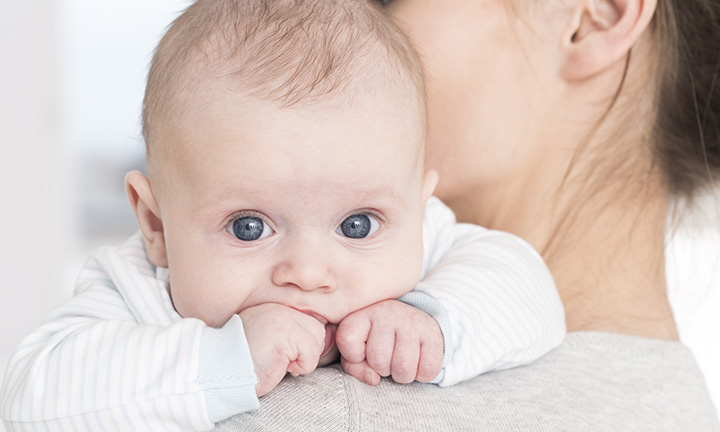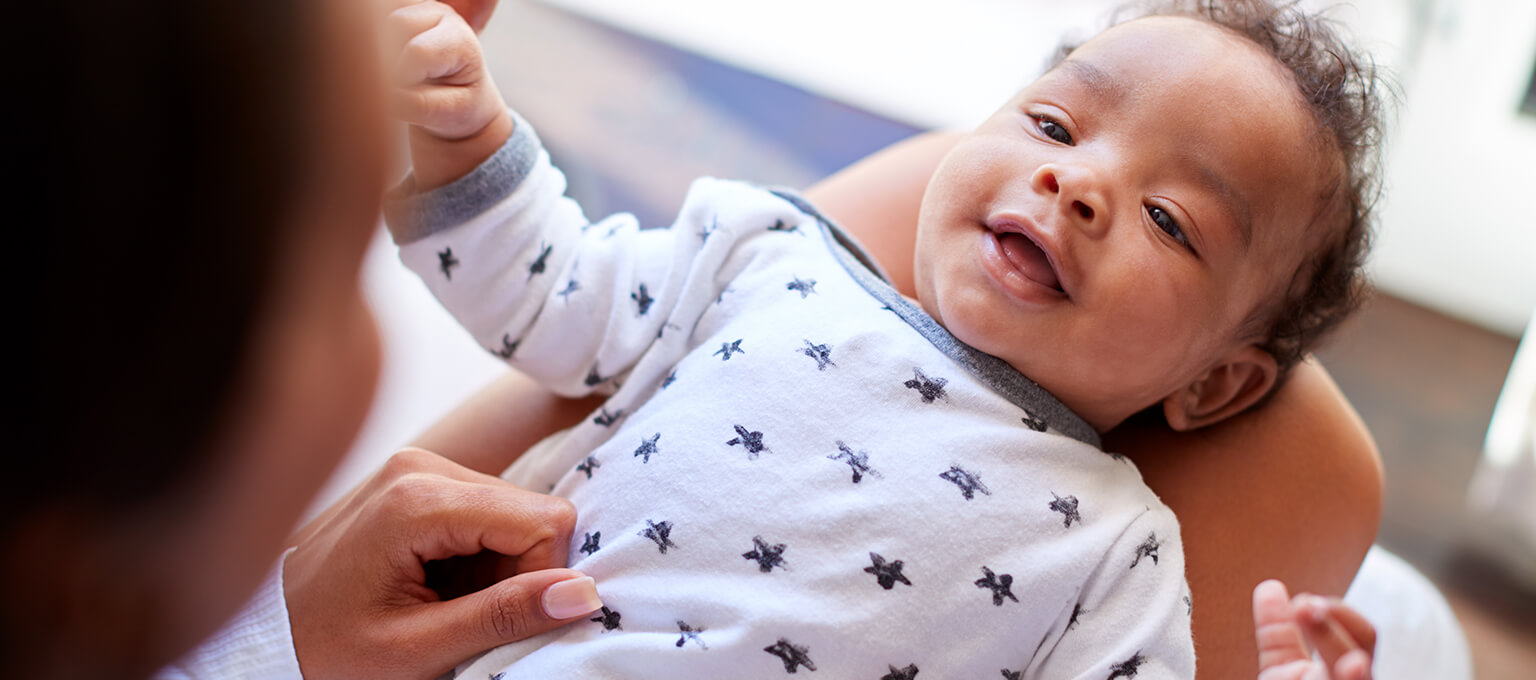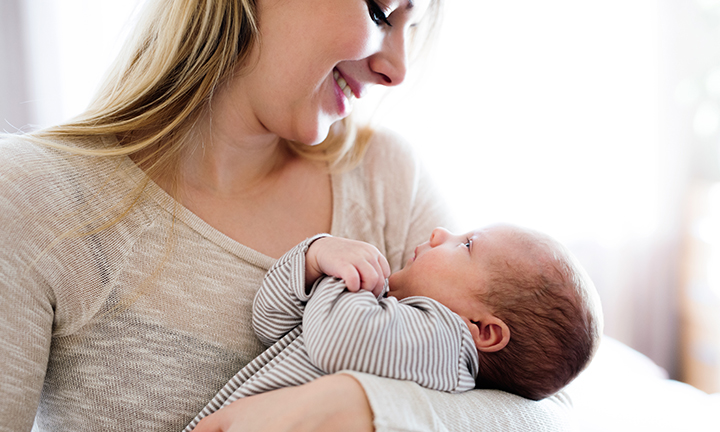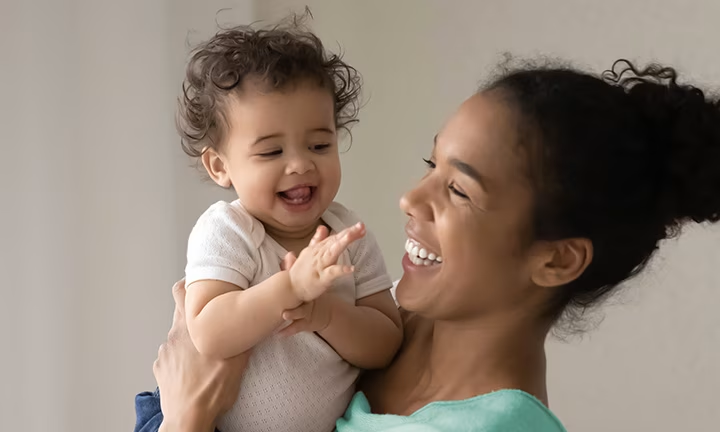
Your Baby's First Laugh
As a new parent, you might be eagerly anticipating your baby's first laugh. It's a milestone that brings with it a sense of joy and wonder. But when do babies laugh for the first time? Let's dive into the world of baby laughter and explore when babies start giggling, why it happens, and how you can encourage them to laugh.
When Do Babies Laugh and Giggle?
Are you eagerly awaiting those first giggles from your baby? If so, you may be wondering ‘When do babies start laughing’ and ‘At what age do babies laugh’? Most babies start to laugh between three and four months old, but this may happen earlier or later in your baby – and that’s OK! It's important to remember that every baby is different and may hit developmental milestones at their own pace. It's amazing to witness your baby's laughter and know that it's another step in their journey of growth and development. It all starts with those precious social smiles around 6-8 weeks old, showing how much they adore you. Laughing, on the other hand, takes a bit more time to develop, but once it does, it's all giggles and joy! After you witness those adorable baby smiles, keep an ear out for the sweet sound of cooing and giggles. Don't worry if your little one doesn't laugh right away – although it usually happens around three to four months, it could take up to 7 months for their first chuckle. But when it finally happens, be ready to capture the moment with your phone or camera. Trust us, it's worth it!
Why Do Babies Laugh?
So, what makes a baby laugh? Babies laugh as a way of communicating and connecting with you and the other people around them. One thing that babies love is playtime. As they grow and develop, they start to enjoy simple games and interactions with their parents. Peek-a-boo, tickling and making silly faces are all great ways to elicit a giggle from your little one.
As your baby grows and develops, their sense of humour will also start to develop. They'll start to understand more complex jokes and may even start to make jokes of their own. But for now, it's all about simple pleasures and enjoying the sound of your baby's laughter.
How and Why to Encourage Your Baby to Laugh
Once you hear your baby's first laugh, you probably want to enjoy it as much as possible. It can be beneficial to understand how laughing is important for your baby’s development and how to inspire those chuckles.
Why Is Your Baby’s Laughter Important?
When you and your baby share a laugh together, many positive things can occur, such as:
How to ‘Make’ Your Baby Laugh
Even though you can’t ‘make’ a baby do something, you can certainly support and encourage laughter in numerous ways which will bring lots of enjoyment for everyone involved! Here are some great ways to encourage those giggles:
It's also worth noting that babies are naturally drawn to faces and voices. They love seeing and hearing familiar people, especially their parents. So, talking and singing to your baby, even if they don't understand the words yet, can be a great way to engage them and encourage laughter. And most importantly, enjoy the special moments of laughter and joy with your baby!
Why Might a Baby Not Laugh?
As a new parent, you may feel concerned if your baby is not laughing by 4, 5 or 6 months. or perhaps your baby smiles a lot but doesn't laugh yet. The truth is, every baby is different and there's no need to worry just yet. Some babies take a little longer to find humour in their surroundings, and that's perfectly normal. Just like adults, babies can have different temperaments, and some may be quieter or shyer than others.
You can try to encourage your baby's first laugh by using some of our tips above. Be patient and try different things to find out what your little one enjoys most.
It's also a good idea to talk to your baby’s GP or health visitor if your baby hasn’t laughed by the end of 7 months, which is usually when most babies can laugh and giggle. Your GP can offer additional advice and suggestions. Remember, every baby has their own timeline, and a little patience can go a long way.
FAQ AT A GLANCE
Every baby is unique and they all develop at their own rate, but babies generally start laughing around 3 to 4 months. It’s not common for babies to laugh at 2 months old, but that’s not saying that your little one won’t.
The Bottom Line
Are you eagerly waiting for your baby to let out their first laugh? It's an exciting milestone for any parent to witness. While babies typically start laughing around 3 or 4 months, every baby is different and it could happen earlier or later. Laughter plays a big role in the development of communication, language, and emotions, so it's important to keep an eye out for it.
If your baby hasn't laughed by 7 months, don't worry too much, but a check-up with their GP could provide some reassurance. Just remember, every baby's journey is unique!
Did you know that babies find laughter irresistible? And the secret to getting your little one to giggle non-stop is by being extra silly! Whether you tickle their tummies, bounce them on your knees or engage them in silly games, it's all about stimulating their senses.
Of course, every baby is unique, so don't worry if your little one takes some time to reach those big milestones, like crawling, walking and talking. The journey is just as exciting as the destination!!
Read more about Baby
Join Pampers Club and get:


